SURPRISINGLY FEW SPOILERS…
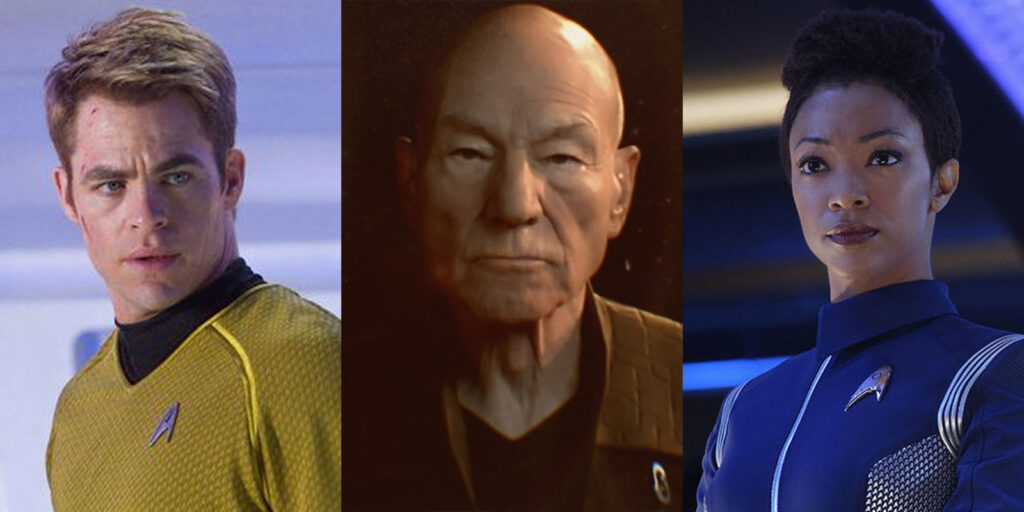
I had almost forgotten the feeling. Maybe that’s because it’s been 15 years since I’ve felt it.
I used to get the feeling often when watching Star Trek episodes. They’d end, and I’d go “WOW” or (as when Riker said “Fire!” followed by the words “To be continued”) I’d just want to see more…NOW!
There were episodes of Next Gen and DS9 that left me feeling proud to be a Star Trek fan, like I was being treated to carefully crafted masterpieces like “The Inner Light” or “Sacrifice of Angels.” Even Voyager and many episodes of Enterprise‘s final season had this effect on me. Star Trek was exciting, fun, thoughtful, brilliant even…and these episodes always left me feeling happy and satisfied with my decision to dedicate so much of my life to this grand sci-fi franchise.
And then the feeling just…stopped.
I really wanted to like the 2009 JJ Abrams Star Trek movie reboot. The ingredients all seemed to be there. But that movie completely missed the mark for me. Star Trek Into Darkness frustrated me even more. And while Star Trek Beyond had a few moments, the feeling of excitement and satisfaction just wasn’t there. I spent more time complaining about unbelievable and illogical plot holes, wondering why Khan was suddenly a white guy, and trying to figure out why a small starship needed to carry a motorcycle and a Beastie Boys soundtrack.
And Discovery only seemed to worsen the situation. I suffered through most of the first season. And while the second season improved noticeably, when each episode ended, I still wasn’t feeling like I wanted more…like I was truly satisfied with what I’d just watched. I wasn’t feeling proud to be a Star Trek fan anymore—at least not with this new series. And most of the Short Treks, while enjoyable, didn’t spark that old feeling either.
Fifteen years.
Three blockbuster movies.
Ten Short Treks.
Twenty-nine episodes of Star Trek: Discovery.
And all I felt was “meh.” I actually had to frequently remind myself why I was sticking with the new releases from the franchise rather than jumping (star)ship as many other disillusioned fans were claiming to have done.
But with just a single episode of the new STAR TREK: PICARD series, the feeling is back, baby, and as strong as it’s ever been! How the heck did that happen???
Fan response to Picard seems to be overwhelmingly positive. A quick survey in the Fan Film Forum Facebook group showed 93 respondents liking/loving it, only 5 disliking it, and no one hating it (6 had no opinion, and 24 hadn’t see it yet).
And with the exception of Entertainment Weekly, I have yet to see a negative review of this new show—not from the fan blogs, not from the major media sources like The New York Times and Rolling Stone, and even Rotten Tomatoes has a Certified Fresh rating of 94% on the ol’ Tomatometer from critics and a solid 83% from fans! (Star Trek: Discovery has an embarrassing 42% from fans.)
So what did Picard get right that JJ Abrams and Discovery haven’t? In short, everything. But that’s too glib and lazy of an answer. So let’s take this question seriously and really look at the answers.
FOCUS
First off, we can all breathe a sigh of relief: this is NOT a dystopian future! It’s Starfleet having stumbled but not fallen completely off the cliff. Keeping in mind that we might see more over the next few episodes that makes me take back that relief, it appears now that Starfleet and the Federation simply had a major trauma when the synths attacked Mars and reacted much the way the U.S. and the world reacted after 9/11.
And this isn’t unprecedented in Star Trek history, folks!
During the Dominion War, the DS9 two-parter “Homefront” and “Paradise Lost” showed us how quickly and easily Starfleet and the Federation could abandon their lofty ideals and descend into fear and paranoia. So I didn’t find that aspect of this new series difficult to accept.
But what I find most fascinating about this new series (and what the show-runners have been telling us for many months) is that this show is NOT about what happened to Starfleet. It’s about what happened to Jean-Luc Picard and how the events of this series change both him and (we hope) the Federation, as well. But this series is focused primarily on this one man—so much so that nearly every scene (all but three!) in the first episode, “Remembrance,” included Picard…and I’ve got no complaints about that so far!
With Discovery, I think the show-runners ended up never really agreeing on the focus. It started out being about Michael Burnham’s journey from impulsive mutineer back into a thoughtful hero through a journey of self-discovery (hence, the title). Then it shifted to being a series about war and what it makes people do. Then it crossed over into the Mirror Universe and all focus was lost for four episodes. And then when Discovery returned to the proper universe, the show raced to wrap up the war and all plot threads…ultimately showing Burnham emerging as the hero (although, in my opinion, not really earning it).
For season two, I’m not sure if anyone can say what Discovery‘s focus was. There was a storyline about Tilly and Magic Mushroom May, Hugh came back of the dead, Saru loses his ganglia and grows a pair, Pike and the Talosians, Spock, time traveling Klingons, time traveling mothers, Skynet, and how many ships can we fit onto the TV screen at one time. Maybe—in the complete opposite of Seinfeld—Discovery‘s second season was a show about “everything.” And I have no idea what JJ Trek is about other than taking some weird detours to explain how Kirk and Spock became friends.
Picard, on the other hand, is focused…very focused. At least in the first episode, this made it easy to follow and a pleasure to watch as I enjoyed seeing some of the mysteries slowly get solved only to open the door to more mysteries below the surface.
PACING
In today’s fast-paced world, many TV shows and movies throw a lot at you all at once, dazzling you with fast cuts and explosions and stunts and high drama. For most of its existence, Star Trek had budgets that couldn’t afford to be like that. But then JJ Abrams turned Star Trek into Star Wars, and Discovery continued the fast pacing by throwing rapid scene shifts and character beats at the audience like baseballs from a pitching machine.
But sometimes you don’t want to take a fast shower. Instead, maybe you’d prefer to enjoy a long, relaxing bath. Guess which one Picard was.
That’s not to say that Picard was like watching a chess tournament. There were ample places in the episode where things got quite fast and dramatic. But between those fastballs were slower pitches and moments where the viewers can rest a little, process what we’ve just seen, and catch our breath before the next major plot development.
As I said, Picard is thoughtful…and it succeeds in being so because it gives us time to think. JJ Trek and Discovery offer viewers that courtesy only very rarely. Usually, those other Treks feel more like being rushed on a tour through a museum trying to make sure the group sees everything without providing time to just look at and appreciate what we’re seeing.
WRITING
You’ve heard (well, read) me complain often about the writing on Discovery. I don’t care about the characters. The writers on that show write to the beats (the major character-changing moments) and then rush to move the character to the next beat, not giving the characters or the audience much time to process.
The characters themselves are a bit caricaturish, as well. There’s little subtlety to Tilly or Stamets or Tyler or Burnham or (heaven help us!) the Empress. Most of them have the dramatic nuances of an air raid siren. Not that they don’t work as characters when put into the proper storyline, but they’ll usually take over a scene rather than simply allow it to play out more subtly.
SIR PATRICK STEWART can take over and overwhelm a scene quite easily if he wants to, but if this show were simply all Picard, all the time, it would be a very different experience. Instead, the writers let us get to know many, many more characters simply because Picard (thanks to Sir Patrick) can play a part within a scene while gently giving others a chance to have the spotlight. Just try to share the spotlight when Michael Burnham is in a scene with you…just try. The writers won’t let you.
In short, the Discovery writers and JJ Trek writers mostly use sledgehammers. The Picard writers, so far, and painting with delicate brushstrokes.
ACTING/DIRECTING
That brings us, of course, to acting. And as I’ve learned recently, good acting doesn’t just happen. It requires good directing. Sure, Sir Patrick could read the phone book and leave us all mesmerized. But a good director, like director and co-executive producer HANELLE M. CULPEPPER, can utilize Patrick’s talents to tell the story in an even more effective manner. It’s like taking the most amazing meal and pairing it with the perfect wine. (I had to work wine into this blog somewhere!)
The acting in Discovery is fairly decent, all things considered, and Hanelle Culpepper did direct a couple of Discovery episodes, as well. But overall, when I watched Picard and its many actors, especially Sir Patrick, I just felt I was seeing acting at a higher level (except for a couple of characters like the reporter).
Of course, comparing the abilities of a 60-year veteran of the Royal Shakespeare Company to a 34-year-old actress whose film career only goes back to 2005 isn’t fair. And SONEQUA MARTIN-GREEN is certainly skilled and has had a lot thrown at her. She’s been tasked with portraying Michael Burnham as confident, angry, insecure, troubled, funny, serious, subordinate, insubordinate, commanding, tough, tender, and just about everything else you can think of. She’s whatever the writers need her to be in the moment…which (unfortunately, I think), has hindered her in finding and clearly defining her character.
Stewart, on the other hand, is playing a character he’s refined and perfected over a decade and a half of TNG episodes and feature films. Slipping into Picard for him is like putting on a old and comfortable pair of sneakers. So now he’s free to explore what new aspects of this character emerge as he enters the final stage of his life. As I said, it’s not fair to compare the leads on these two shows.
What is fair, I believe, is to compare the rest of the cast. Now, I have to say up front that when it comes to acting, I’m a watcher, not a performer. But as a watcher, when I see episodes of Discovery and the JJ movies, I see actors delivering their lines “in a box.” There’s no question that DOUG JONES is an amazing actor or that CHRIS PINE is incredibly talented. But when I see them doing scenes, their performances feel, well, I guess the best word I can think of is “isolated.” Mary Wiseman does a good job playing Tilly, but it almost feels like, when it’s her turn to speak in a scene, she’s handed the microphone, the spotlight is pointed at her, she delivers her line(s), and then the mic is handed off to the next actor to do the same. Maybe that’s the actors; maybe it’s the way they’re being directed. And maybe I’m just imagining things.
Now in Picard, admittedly, most of the scenes do involve Sir Patrick himself, and as WIL WHEATON commented in the first episode of THE READY ROOM (essentially the “AfterTrek” of Picard), Sir Patrick helps the actors he works with be better actors. So simply appearing in a scene with Jean-Luc Picard likely results in a better performance. But whether it was that or quality directing or some combination, the scenes in Picard just felt so much more impactful than anything I’ve seen in JJ Trek or Discovery (excepting most scenes of ANSON MOUNT as Pike because, well, it’s Anson Mount!). The dialog just seemed to flow better in Picard. I really felt, as I watched and listened, that I was there in the scene with the characters rather than just sitting back and viewing things passively on a TV screen.
If there are any experienced actors reading this who would like to comment about whether I’m on the mark here or just full of crap, I welcome your insights.
PRODUCTION DESIGN AND CONTINUITY
I almost titled this blog, “Now THAT’S a STAR TREK!” And the fact is that Picard did something from the very first moment that Discovery and JJ Trek have struggled to do…and all-too-often failed miserably at: honoring canon.
It’s not that hard, people!
[WARNING! Spoilers in the next five paragraphs.]
The Enterprise-D shows up in the first minute and looks like the Enterprise-D. And while Data wears a style of uniform that he never wore on the “D” (the gray shouldered jacket was introduced in First Contact along with the Enterprise-E), that was okay because it was a dream sequence. Later, we see Picard and Data in their television TNG uniforms, and the comm badges are the oval-background ones, as opposed to the later style, which Data is wearing in the first dream. Neither was redesigned or rebooted or retconned.
In Boston, we see the Ferengi logo on one building and the London Kings logo on another (they were Buck Bokai’s baseball team…perhaps resurrected and relocated to Boston where they’re still stealing signals). So there’s a nod to Deep Space Nine…and of course, we get Voyager‘s Seven-of-Nine in at least two of the upcoming episodes. We see a replicator that looks like a replicator. We see Romulans that look like Romulans (why couldn’t Discovery have left the Klingons alone????) All of the remembrances in Picard’s “quantum archive” were perfect replicas of what we’ve seen before: the USS Stargazer, the Enterprise-E, the bat’leth and d’k tahg, the Captain’s yacht, the “Picard Day” banner. The episode showed the Daystrom institute and mentioned Bruce Maddox from TNG‘s “The Measure of a Man.” And of course, we see the Château Picard Vineyard (which I will be visiting soon…it’s out near Solvang, CA).
See? There’s nothing wrong with keeping what went before. I just wish JJ and the Discovery folks had gotten the mind-meld…er, memo. Instead, Discovery‘s production designer did all sorts of crazy stuff from the shiny metallic Starfleet uniforms to the Klingon D7s that looked nothing like D7s to the consoles to color-shifting to a blue sheen over nearly every shot. Discovery looks so monochromatic and cold to me. And don’t get me started on JJ Abrams and the Budweiser brewery engine room!
Of course, Picard doesn’t carry a one-to-one consistency over everything. A perfect example is the almost instantaneous transporters that no longer take 5-10 seconds to disassemble and reassemble you. But just as 4G and 5G WIFI networks are ridiculously faster than what existed 20 years ago, so too has the Federation advanced 20 years since we last saw Jean-Luc Picard. So instantaneous transporters aren’t hard to accept…unlike transwarp beaming and spore drives! We also have new Starfleet uniforms, but they look much closer to a natural evolution from what came before than the Discovery blue ‘n’ shiny disco suits.
Another example is the “no synth” policy, which means no androids and no B4 replacing Data. But that’s a feature, not a bug. The whole show is looking at the aftermath of the synth attack, and we’d all like to know what the heck happened. We had a little taste of the story at the Daystrom Institute…just enough to wet our appetites for more! Oh, and lest I forget, they deal with the Data/B4 issue, too. Yay for keeping continuity intact!
And let’s also hear it for the production designer on Picard who, instead of going for the white AppleStore look and endless lens flares (yeah, I know that was JJ) or the cold blues and grays, Picard is filled with warm earth tones with colorful accents. Granted, these are scenes primarily on Earth itself, so earth tones make sense. Once Picard goes to space, that could (and probably should) change, as it did when the episode shifted to the cold grays and eerie greens of the Romulans’ home-sweet-cube base. But Star Trek has always been colorful—even in the more subdued hues of DS9 and Enterprise. And while JJ Trek was colorful, as well, the whites of the corridors and bridge never felt right. And Discovery just looks and feels imposing and depressing to me.
NO F-BOMBS
‘Nuff said.

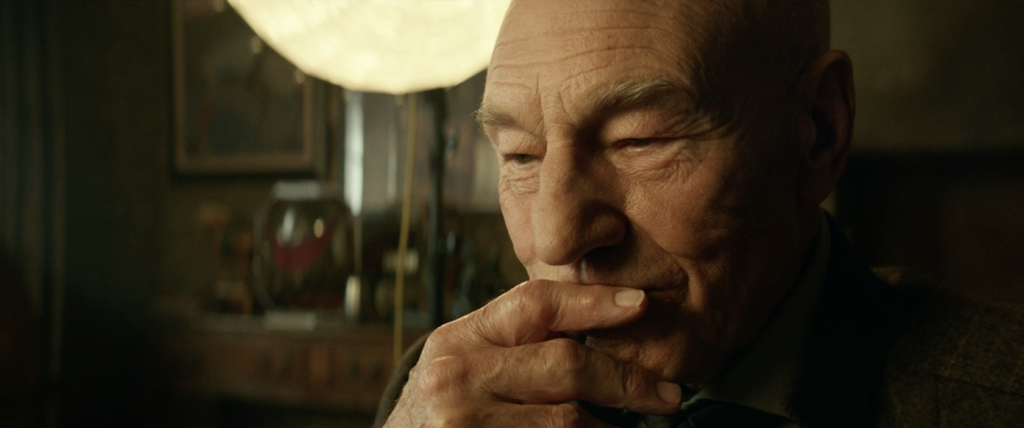
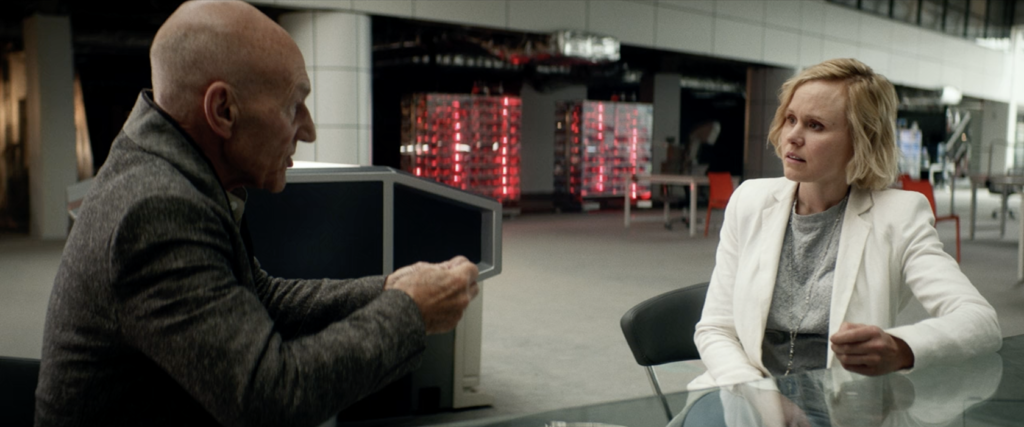
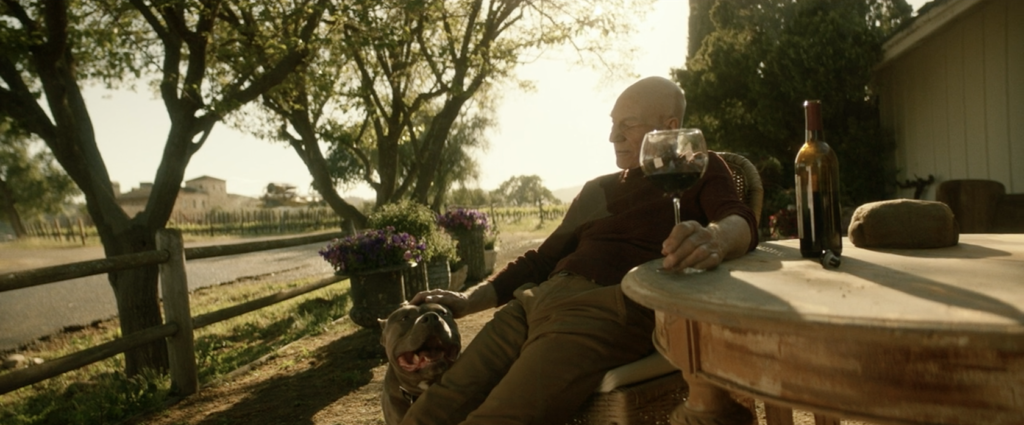
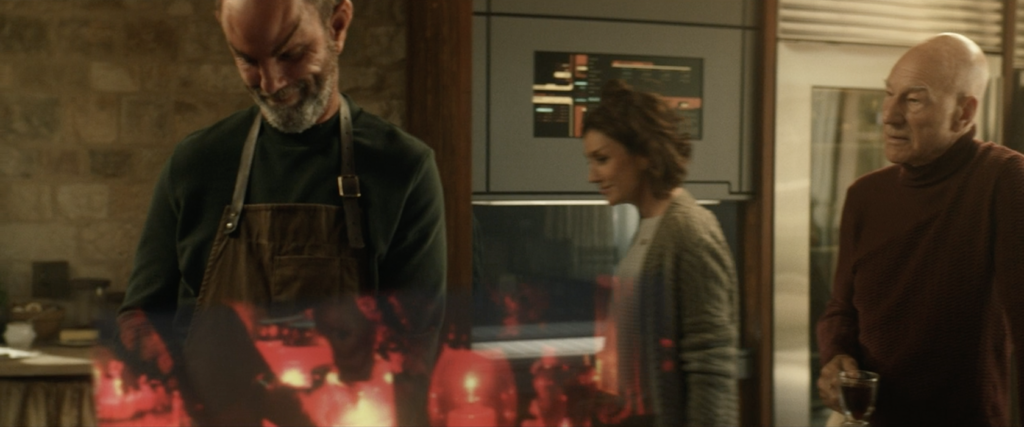
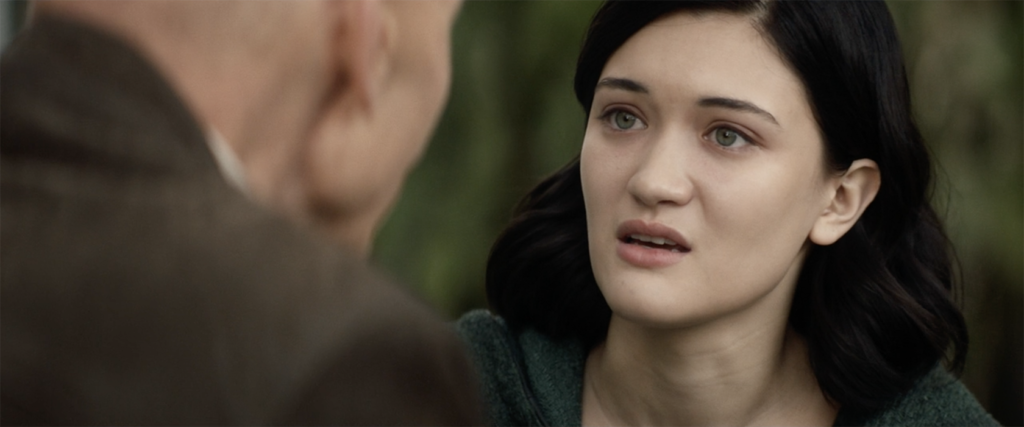
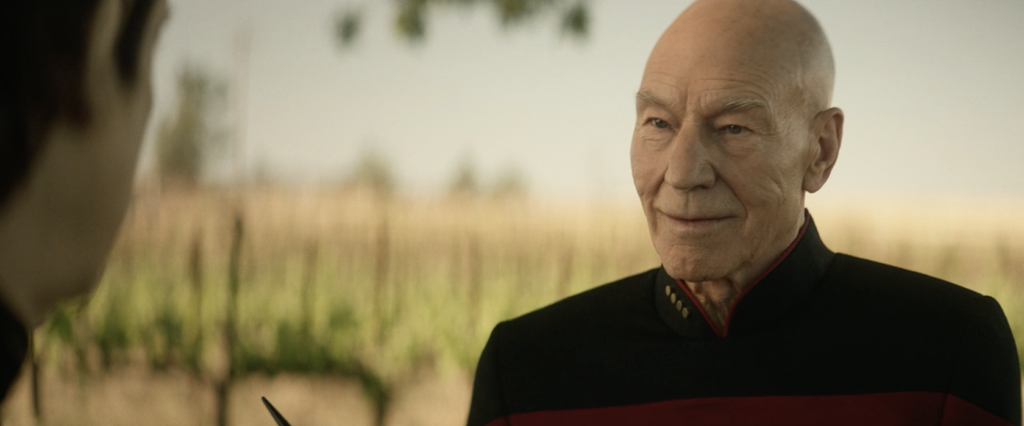
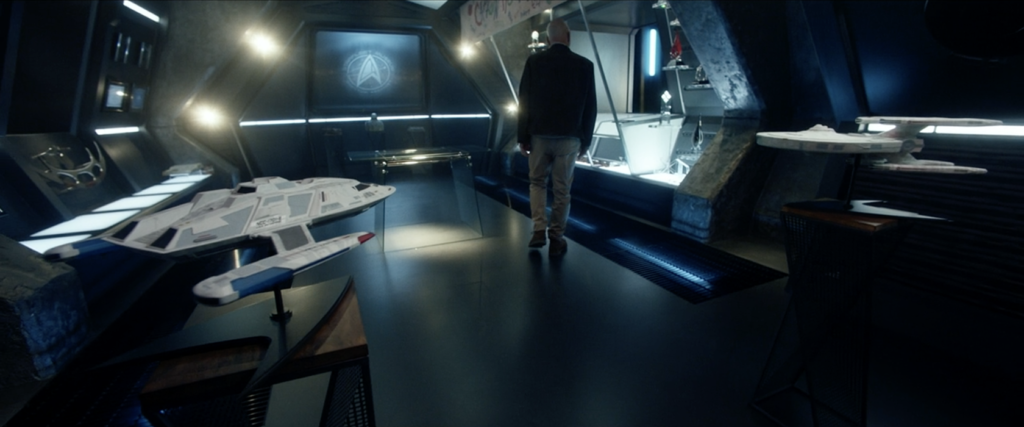
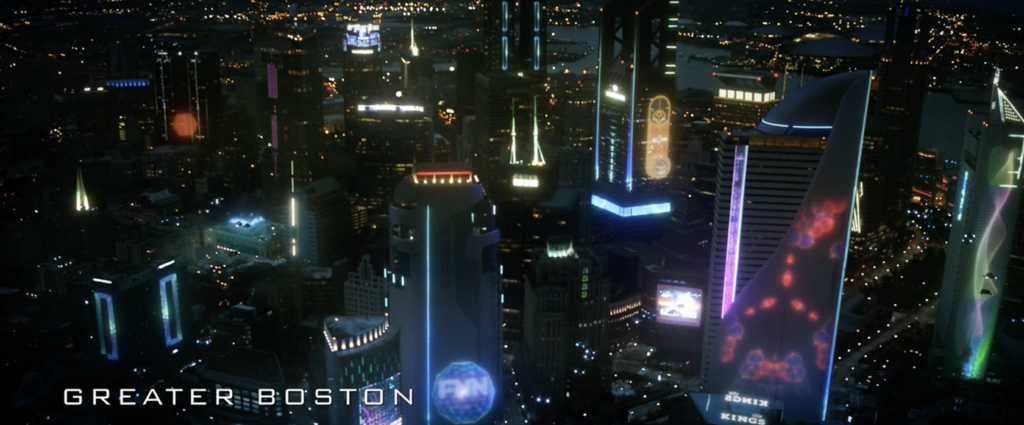
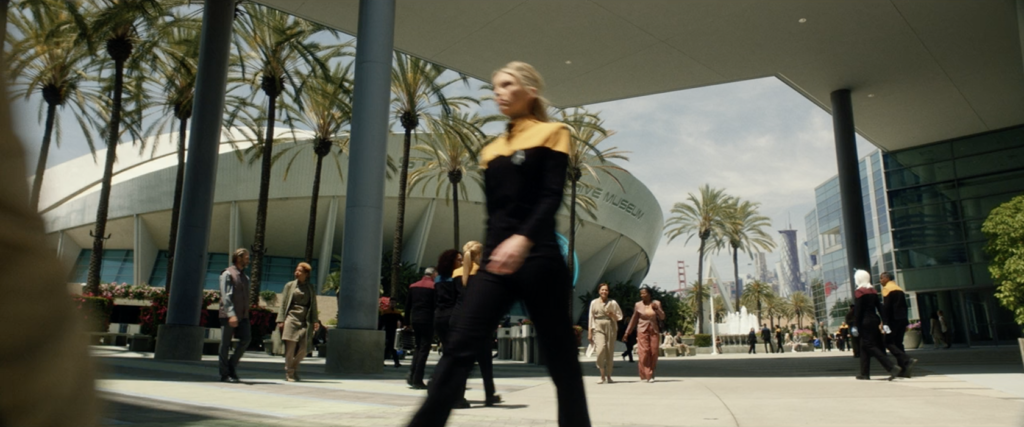
Well said my friend. As someone with a small amount of acting and film set experience I can say that the acting and directing in Picard is a thousand times better than STD. As for JJ Trek my issues aren’t with the acting and only partially with the directing. I think the actors and their performances were great, even Cumberbatch. Let’s face it if you’re doing Khan you go big or go home. My issues were with the story, filming and design choices. Seriously what’s with the lens flare. As for the Budweiser plant Engine Room I liked it but it was too big. It didn’t need to be so deep or so tall and it needed more tech. But I liked what they were trying to do with it. As for the directing, Spock’s “Khaaaaaaaan” was all JJ and it sucked.
Excellent review! My goodness… this actually gives me some HOPE about the future of Trek! let’s hope this one works out well. Darn it all tho, it’s not on “regular TV” where I’m already paying $$ to watch… sigh. But I won’t beat that dead horse. I hope that one day Picard WILL be released to broadcast TV (or even the Sci Fi channel!) so I can see it. Or DVD. based on what you’ve said, I might buy the DVDs… if they ever come out. 🙂 DSC is a non-starter… and I agree with everything you’ve said about that show. They couldn’t GIVE me the DVD’s of that mess! 🙁
DVDs/Blu-rays of Picard are almost a given. I suspect we’ll see them in time for the Christmas holiday of 2020. Give the gift of PICARD to someone you love… 🙂
It better be long before Christmas.
The elves are already designing the box cover. 🙂
Okay.
You’ve changed my mind.
Now I think I’ll get CBS and see it.
Cha-CHING! There’s my first commission check!
Oh, wait…I’m not getting paid a commission. Damn!
Can’t you become a Star Trek Affiliate, like the Star Trek Daily News Podcast, a Roddenberry Production, whis host has been begging its listeners to use the special link to join CBS All Access so is helps support her daily news show and she doesn’t have to beg the listeners so hard to sigh their lives away to patron or sell Harry’s Save club or the umpteenth version of meals delivered to your door that use way too much cilantro and Basil in them, and a kit for four is barely enough to feed two, or one if it is feeding Basile,the Greek comedian! (I hope you have had the pleasure of seeing Basile perform, so you know who I’m talking about, if not, try YouTube, everyone is up on YouTube, of course) here is a link so you don’t have to work hard to see a taste of Basile the Greek Entertainer
https://youtu.be/qDGq230wFxY
But Jonathan, I digress, you can be capitalizing on this CBS All Access Cash Cow if you figure out how to be an affiliate!
Man, that comedian is hilarious! Thanks for sharing.
As for becoming a CBS All Access “affiliate,” I doubt it would be worth the few dollars I might get from doing it. Also, if I were recommending that people sign up for All Access, I doubt my reviews of Discovery or Picard would be seen as objective.
You forgot to mention the Kasidy Yates sign in Boston
I didn’t see that! Where was it? (Other than the obvious answer “in Boston.”)
It’s a small rectangular sign towards the bottom of the skyline below the skyscrapers.
I’m still not seeing it, Joe. Left side? Right side? Middle? Which color building is above the sign?
I can spot it in the colorful sign left of the Kings and below the Ferengi one, a white font down below, covered partially by some other graphic.
I rather enjoyed this first episode of Picard. The story elements kept me interested. I was never aware of the actors “acting” they just presented the storyline that kept moving forward. The only predictable thing was, we all knew the reporter was going to viloate the “why did you leave starfleet” rule. But what a setup for Sir Patrick Stewart to display his amazing talent! I was totally in the moment. That’s what good talent, good directing, and good writing gets you. I hope they keep it up.
The exposition had to happen somewhere and somehow. What happened to Picard and Starfleet between then and now? What made him leave? This was as good a way to do it as any. While predictable, it had a job to do, and it did it. Now, time to move forward! 🙂
God, I agree with everything you said. Thank you for saying it too. The Abrams movies were so unbelievable that I wouldn’t watch them again. Action, action, action with scenes that would kill ordinary men or totally destroy a ship. Discovery is more of the same. I am going to watch the 2nd season soon but the first season was something I had to force myself to watch.
Discovery’s second season was, in fact, significantly better than the first season. That said, it’s kinda like saying Maine is significantly larger than Rhode Island. I mean, it is, but California, Taxes, and Alaska look at Maine and say, “Where do you want to store it? We have plenty of room!” 🙂
If you happen to remember my rants about CBS/P and Axanar, I was REALLY RELUCTANT to invest anything on ST:Picard. But tonight there was nothing else we wanted to watch so in a moment of TV angst, I thought “why not try it for free and I can see two episodes before I make up my mind”.
What did I think? As a student of acting, my #1 goal is to make it about the character. If we see the actor acting, it’s a failure.
Well, without a gigantic spoiler, when there was a certain character who we saw with Picard at Star Fleet Headquarters, I did not think “what good acting”, but “OMG WHAT? How could that happen?”. In other words, I was invested in the show and utterly shocked at that plot twist.
The only time I was not was when I turned to my dog loving (me too) wife and said something about how wonderful that “Number 1”, the pitbull, was included in the show and she agreed! 🙂
I agree, but I’m afraid the dog was one of the weakest actors in the episode. Sorry, but I’m not the only one who thought so. Hanelle Culpepper, the director, had to write Number One out of some scenes because he just wasn’t putting in a decent enough performance. He might have just been having a bad hair day. It was filmed during the dog-days of summer. Too bad, though, because it was a role he should have really been able to sink his teeth into. Maybe he was dog-tired or he’d gotten into trouble with his wife for calling her a bitch and was really in the doghouse. Maybe he just tried too hard to bury himself in the part and instead barely scratched the surface of his character. Whatever the reason, while I liked Number One, he was no Porthos! 🙂
Come on comparing Number 1 to Porthos is like comparing Shatner to Stewart.
Bulldogs don’t wear toupees. 🙂
Thanks for working out what I couldn‘t grasp, which is why I didn‘t feel satisfied with the Trek of the last 15 years. Spot on! Bring on more Picard! But leave out the Discovery era ships and shuttles, that‘s about the only gripe I have with the show.
CGI and VFX are expensive, y’know! 🙂
I absolutely loved it, my heart was happy, finally.
Connie has a happy heart! Hooray! 🙂
I am standing and applauding this review…YES…a standing ovation!
Bingo…Spot On! Couldn’t agree more!
I can’t stand Discovery but struggled to know where to start to describe my deep issues with it. You hit the nail on the head.
My only problem with ST: Picard is the “synth” part of the storyline. It seemed a bit of racist attitude after years of fighting for the rights of artificial lifeforms in “Measure of a Man.”
Nobody has ever been able to create androids like Data, since Noonien Singh. So where did all these others come from? Something doesn’t make sense.
And what is this constant talk about Romulans being almost wiped out? Where did that silliness come from? I do not care for it… it smacks of JJ Abrams nonsense spilling over into canon.
Other than that, I like Picard and agree with every reason you listed as to why it’s far and away superior to Abrams and Discovery. I think the “focus” of Discovery is to discover how bad they can make it and still have fans. I watched a few episodes and never returned.
There’s been some folks on Facebook arguing stridently that, because JJ Abrams’ Star Trek takes place in an alternate “Kelvin-verse” that none of JJ’s movies are canon. But that’s not quite true.
Spock Prime came back in time from “our” Prime universe thanks to a supernova that destroyed Romulus (and spent back Nero, as well). So at least that part of JJ Trek is canon (as is the USS Kelvin and those Starfleet uniforms they wore). Everything until Nero emerged in 2233 was canon. It was the destruction of the USS Kelvin and the death of George Kirk that began the alternate “Kelvin” timeline. You can ignore that timeline if you want, but you can’t ignore the canon parts of the movie. So yes, the Romulan sun went supernova and the Romulan Star Empire is no more…in the Prime Universe. Sorry, but you’ll just have to deal with it, as it’s a central part of Star Trek: Picard.
As for the synth problem, I suspect that will be addressed as the series goes on. But think about it: why would you even want to create a synth if not to be a service machine? You can send them into dangerous situations where there’s radiation or poisonous gases or any number of hazards. They’ll be heroes, of course, but they’ll also be slaves. Their entire purpose will be to do the jobs that humans don’t want to or can’t do…or are too dangerous to do. And if a synth refuses? Then why build it in the first place? So the idea of a synth with free will is kind of like creating a toaster that has the right to refuse to heat bread. That sounds ridiculous, but who would ever give a toaster a choice? Same is true for synths.
But if you’re a synth, you might see things differently…and obviously, many did.
It could be the Synths were created without true sentience but developed it as they learned. Just an idea. I have nothing to base that on.
Patience. I am certain all will be revealed to us, grasshopper.
Very promising stuff so far, and so good to have Patrick Stewart and Picard back. When he so tenderly delivers the line “I don’t want the dream to end,” he could well have been speaking for all fans of the franchise.
Most of all it seems to be a production which values and respects the franchise, whereas Discovery and the JJ movies increasingly appear to be exploiting it, and couldn’t be further from that simple vision of a ‘wagon train to the stars’ .
Well said. I love that line also but I think my favorite is from the Romulan Zhaban before the interview “Be the Captain they remember.” I feel like that was truly for the fans. Telling him to be the Captain we remember. And he was. He was that and more.
Wow! Some great comments, here! 🙂 I haven’t seen it, and won’t until it’s on regular TV, or a DVD… but I am encouraged by what OI am reading! Thinking of “Measure of a Man” there was also the sequel, “Data’s Day” where throughout that episode, we hear Data narrating his day and addressing it to Commander Maddox. I would guess that the “Synths” had something to do with his research into how Data functioned. There was also another TNG episode (name escapes me) where these small “robots” were built, called “Exocomps” which eventually attained sentience. We also saw how a holodeck character (Professor Moriarty) attained sentience… so there are a bunch of ties back into canon that could be applied to the Synths.
Don’t forget Voyager’s EMH! 🙂
Voyager opened some interesting lines of thought about holograms’ sentience which, sadly, never went beyond arguing that the Doctor should be considered an individual, because the logical end of those plots was some kind of IA revolution with the holodeck characters asking to be considered as individuals instead of some kind of tools or toys.
If somebody thinks that this would be too farfetched, I want to note that “Voyager” had an episode, “Body and Soul”, which shown a Delta Quadrant species who had enslaved holograms, and those holograms rebelled, leading to a war between the two sides. If I lived in the Star Trek universe and learnt that there is at least one planet in the galaxy in which an “hologram insurrection” has occurred, I would never look the holodeck (and its holoprograms) the same way. Photons Be Free!
I recently watched a video of a computer making an appointment for a haircut and, later, a dinner reservation. The voice was so real that the people on the other end of the calls had no idea they were talking to a computer.
That totally creeped me out.
You should use the free week when it’s done and watch the whole thing. Personally I think this show is actually worth the $5 a month.
I’m paying $5.99, dude!
Great analysis, I like the idea of breaking it down into different areas and I pretty much entirely agree.
I think, at risk of being (slightly) negative, the only factor that makes me uneasy is whether we are more pre-disposed towards this because of the familiar character at its centre. At its heart, this is a story about a central character battling to win through against the odds, solve the mystery and make the world a better place. Now, I happen to love stories like that, but is this entirely Star Trek I wonder? Elements if its are, perhaps that’s enough. Ultimately, I don’t mind, I was thoroughly entertained.
For the future of the franchise it would be nice to see the baton being passed on. I hope they can develop some strong, new characters around Picard. The only part of the program that made me wince was watching him running up the stairs, he’s exceptonally fit for his age but still, handle him with care, he’s a national treasure! Hopefully he’ll keep going, the directors will be kind and this will series will live long and prosper.
That’s not Patrick running up the stairs; it’s his stunt double. I know this because the guy is good friends with my son’s gymnastics coach, and he introduced me to the guy. They’re taking VERY good care of Sir Patrick!
As for your question of whether we are more pre-disposed towards this because of the familiar character at its centre…I ask: why does it matter as long as it’s a good show? Discovery brought us Pike and Spock and Number One. I liked them all. But I still have a lot of problems with Discovery. It’s simply not as good a show…regardless of familiar characters.
I was kidding, as you probably guessed, but interesting that you know the stunt double.
I don’t think we disagree on Discovery or Picard. I would just like to see some fresh characters develop that we can get excited by for many, many years to come.
Technically, I only met the stunt double. My son’s gymnastics coach is the one who knows him. Really nice guy! 🙂
About “ST: Picard” showing us a Starfleet who has stumbled but not fallen completely off the cliff, I would like to add that Starfleet only stumbled because somebody punched her in the face, and she is still recovering from that hit.
Starfleet was initially perfectly happy to help the Romulan evacuation: they were building 10.000 warp-capable ferries in the Utopia Planitia shipyards, which got destroyed in which it is described as a “devastating” attack. They lost the entire rescue armada and one of the most important starship construction facilities of the entire Federation. I perfectly understand Starfleet saying “We don’t have the resources the help”, Picard arguing to divert all available Starfleet vessels to serve as an impromptu rescue armada, Starfleet counterarguing that those vessels must remain in their active duties because it is quite possible that there are further “rogue synth” attacks coming, and Picard resigning in disgust. Starfleet choose pragmatism over idealism, but they had sound reasons to do that. Taking post-Praxis explosion Klingon relief effort of “The Undiscovered Country” as a close example, this is not a case of the Starfleet admiralship just saying “Let them die”. It is more a case of “Somebody murdered Chancellor Gorkon and they are accusing us of being the killers. Let’s put all our ships on Red Alert and close our borders with the Klingon Empire”.
I think the whole message of Star Trek through the decades from Kirk through Picard then Sisko and Janeway then Archer was to show that the right way isn’t always the easy or the safest way…and that sometimes helping people is the most important thing, even at the risk of your ship, your crew, or even your own life. From the moment that Kirk spares the Gorn in “Arena” or offers to beam the Romulan survivors to safety in “Balance of Terror,” Star Trek planted its flag in decency and morals overcoming the need to fight and obliterate an enemy. That’s one of the reasons why JJ Kirk’s reaction after Nero refuses help always disgusted me. “Our” Kirk would never be so crass. But by 2009, our society had lost a lot of its civility…and I guess, so did Jim Kirk.
Picard takes us back to that place of our moral compass still pointing in the right direction. Sure, Starfleet had been punched in the face by the synth attack, and the Romulans were a centuries-old enemy. But they fought alongside us in the Dominion War. And if our alliance with the Klingons taught the Federation anything, it was that mortal enemies could become friends and allies. It was possible. Picard was the eternal optimist…as were Kirk and the other captains. Starfleet lost its way fifteen years ago, and Picard felt tired and defeated. Now he regrets indulging that frustration, that pessimism, and he wants another chance to help Starfleet and the Federation regain its…well…its humanity, its soul. That is the message of hope in this series. It’s not about explaining why Starfleet turned its back on the Romulans. It’s about putting right what once went wrong before leaping back home.
Jonathan,
While I was gone on travel for a few weeks my spousal-unit got the first season of STD on DVD from Netflix as I had read your review and didn’t feel it was worth the subscription price for CBSAA. After the first season was done, she said, in effect, “Great Sci-fi show, but it wasn’t Trek. They could’ve named it anything else and it would have done well, but naming it ‘Trek’ set up an expectation in the audience that wasn’t delivered by the show itself.”
So, given that I’ve already got the subscription for Netflix and can’t afford a bajillion separate streaming services, is Picard better than The Mandlorian?
Hard to say after only one episode of Picard, but I think “yes” if you’re a Star Trek fan more than a Star Wars fan. If vice-versa, then the Mandalorian is probably more to your liking. But both series are excellent.
The Mandalorian is formulaic, though. For most episodes, “the gunslinger” wanders into a new situation, gets caught up in it somehow (usually against his first instincts not to), gets his ass kicked, and finally kicks some ass…usually while Baby Yoda either watches or helps. Variations of the same song are played over and over, but the song is pleasant, the instruments (characters) compelling and interesting, and the presentation skillful and accomplished. The show is fun but not very deep.
Picard seems to be much deeper and probably not as formulaic episode-by-episode. But we’ll have to wait a little and see.
I like the title used for a very positive “Star Trek: Picard” in a Spanish newspaper: “Picard makes the Star Trek universe an opportunity instead of a barrier (or simple nostalgia)”.
¡Muy Bueno! Estoy de acuerdo. 🙂